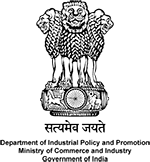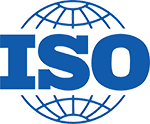What is Patent Registration Overview
After the process of patent registration, one gets intellectual property right to an invention carried out by an individual or a firm. In case it is unique, the government will grant you the full right for your product. It grants you the full right of making, using, selling or importing the product or process and prohibits others from doing so. The patents in India are governed by the Patent Act 1970 and Patent Rules 1972.
The lifetime of a patent is 20 years. This period is limited is most cases, but it could only be extended by the act of congress and in rare cases it could be extended for a few years.
The patent could be for many things, be it process, art, method to manufacture, particular apparatus, machine, computer software, technical application, chemicals or drugs. We, at LegalRaasta act as patent agent and helps companies register themselves in Delhi NCR, Mumbai, Bengaluru, Chennai and all other Indian cities.
Types of Patent Registration
This type of application is carried out when there are not any application or reference to any other application under process in the Indian Patent office. The priority date and filing date are the same for ordinary application.
If an inventor has already filed a patent in other country and now wishes to do the same, then this comes under conventional application. It is mandatory to file the application for Indian patent within 12 months of first filing it.
PCT International application lets you to file the patent application in multiple countries and you can file it in up to 142 countries. It could take between 30-31 months from the international filing date to enter and claim protection in each country.
PCT National phase application
You can file this application within 31 months from the international filing date.
Process for Patent Registration
01
Patent Search
For a successful patent registration, you need to ensure that your invention/idea is non-obvious and unique. Carrying out a patent search will help you to ensure this and also to avoid lengthy official procedures. You can search for yourself or can take professional help from experts. You can also conduct a patent search with the help of experts.
You may skip the below-mentioned steps if you come across a similar patent registered already.
02
Filing a patent application
For patent filing in India, one of the most crucial aspects to consider is the preparation of patent specifications. The entire process of drafting a patent specification is a specialized task that can be done best by experienced professionals only.
Ideation: Here, you need to pen down the idea or concept, clearly mentioning the key details about the invention and the desired patent.
Visualisation: Visualise your idea and elements in the form of diagrams that explain more about the invention.
Verification and Patentability Search: The next step is to verify whether your invention is patentable as per provisions mentioned in the Indian Patent Act. Your ideas/inventions must meet the patentability requirements such as:
- Novelty
- Non-obviousness
- Usefulness
- Patentable subject matter
Drafting a patent application is an art in itself. Seeking the help of a patent professional will be a wise choice here. If you are in the initial stages of the research and development process, then it is best to file an optional preliminary application called the provisional patent application.
03
Preparation of a patentability report
Authorized patent professionals or patent agents will then do extensive research and prepare the patentability report that contains the analyses based on the above-mentioned criteria. You should also attach all the specified documents along with the patent application. Have a thorough check on the documents before submission, to avoid any rejection in the future.
04
Publication of patent application
The application is then published in the Patent Journal within 18 months. A request for early filing of the patent application can be made along with a prescribed fee.
Publication of Filed Patent
For patent registration in India, the Indian patent office keeps every patent application confidential until it gets officially published in the Patent Journal.
The publication of filed patent happens automatically after 18 months from filing the applications, and there is no need for any request to be raised.
To get the patent published in advance, the applicant has to initiate a formal request and it will get published within 1 month of the request.
The publication date does matter the most as the inventor is entitled to protect his work legally, immediately after the publication.
05
Patent Examination
There would be a formal submission of a request for the patent examination which must be filed within 48 months from the first filing of the patent (provisional patent or complete patent). If the applicant fails to file within the time frame specified in the Patent Act, the application will be treated as withdrawn by the patent office. The examiner then conducts a comprehensive investigation and releases the first examination report called patent prosecution.
06
Patent objections
It is common for patent applicants to receive objections, like "inconsistent or unclear claims", "invention lacking novelty", etc. Hence, it is mandatory to analyze the patent examination report and draft a proper response to the objections.
07
Grant of patent
Once all the patentability requirements are met, the notification to grant patent will be published in the Patent Journal.
Documents Required For Patent Registration
- Patent application in form-1
- Proof of right to file the application of patent. This proof could either be attached at the end of application or along with it.
- If complete specifications is not available, then provisional specifications.
- In the case of provisional specifications, then complete specification in form-2 within 12 months.
- Statement and undertaking under section-8 in form-3 (if applicable).
- If patent application is filed by patent agent, then power of authority in form-26.
- If the application is for biological material, then the applicant is required to get permission from the National Biodiversity Authority, before the grant of the patent.
- The source of geographical origin should also be included in the case of biological material used in the innovation.
- All the applications must bear the signature of the applicant/authorized person/Patent attorney.
- The last page of the complete/provisional specification must be signed by the applicant/agent. Including the sign at the right bottom corner of the drawing sheets.
FAQs On Patent Registration
A Patent Registration application is not examined automatically after its filing.
The patentee has the option to pay the renewal fees every year, or he can pay in a mass sum as well
Yes, there is an 'International Depository Authority' in India established at Chandigarh, which is recognised as the Institute of Microbial Technology (IMTECH).
Forms 18A, 29 and 30 have newly demonstrated because of the Patents Act, 1970 Amendment 2016. Form 18A has moreover been amended in Patents (Amendment) Rules, 2019.
The Patent office Journal includes information relating to patent applications which are issued u/s 11A, post grant publication, restoration of patent, notifications, list of non- working patents including public notices published by the Patent Office.
A Patent Registration application is not examined automatically after its filing.
Yes, India has four patent departments located at Kolkata, New Delhi, Mumbai and Chennai. Every office has a separate provincial jurisdiction.
The patent registration confers upon the inventor or the applicant, in case rights have been delegated in favor of some other person.Key benefits are as under:
A patent can be objected in two ways one is pre grant and another post grant. Pre grant can be done within 6 months from the date of publication in the patent journal. Post grant objection can be done within 12 months from grant of patent.
A. Any invention or inventive step which having novelty and capable of industrial application, such inventions or inventive steps can be patentable. It should not fall on the explicit exclusions for patent under s.3 and s.4 of Indian patent act.
A. Any invention or inventive step which having novelty and capable of industrial application, such inventions or inventive steps can be patentable. It should not fall on the explicit exclusions for patent under s.3 and s.4 of Indian patent act.
A. Once the examination done, the patent officer will issue a report, based upon the report if any requirement need to made, it should be done within the 12 moths. Once done and there is no petition for objection the paten will be granted.
A. If no reply or no requirement made within 12 months, the application is deemed as abandoned one.
Yes, the applicant can demand the early publication in Form 9 along with the prescribed fee. After getting such request, the Patent Office publishes such application within one month implemented the invention contained thereon does not linked to Atomic energy or Defence scheme.
If the candidate does not file a reply within six months or does not take an extension of 3 months, the request is deemed to have abandoned.
No, there is no fee for filing description for pre-grant opposition? Anybody can file this.
The grounds for filing pre-grant opposition are included in section 25(1) of the Patents Act 1970.















